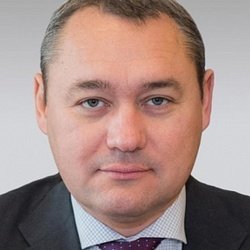Kazan Digital Week: unmanned vehicles, biometrics and 'digital future community'
The first day of Kazan Digital Week international online forum started on 21 September. The meeting of leading experts and practitioners of digital development was opened by top speakers, including the president of Tatarstan, representatives of the Central Bank and federal ministries. They discussed the main areas of the forum: cybersecurity, fintech and intelligent transport systems. Despite the fact that the event is completely held in online format, the schedule also included an entertainment component that introduces participants to Tatar culture. Read the details in the material of Realnoe Vremya.
Digital forum about digital future
Minister of Finance of Tatarstan Ayrat Khairullin, who promised to gather a pool of high-ranking guests at the opening of Kazan Digital Week, kept his word: on the first day, head of Skolkovo Foundation Arkady Dvorkovich, deputy chairman of the Central Bank Olga Skorobogatova, Deputy Prime Minister Marat Khusnullin, Acting Minister of Transport of Russia Innokenty Alafinov, President of Tatarstan Rustam Minnikhanov and other status speakers addressed the forum participants.
Only the announced speech by Russian Prime Minister Mikhail Mishustin did not work out, but the prime minister sent a telegram to the forum participants, which was read out at the start of the event.
Let us remind that Kazan Digital Week's programme is dedicated to five areas: intelligent transport systems(ITS), situation centres (SC), cybersecurity, fintech, and business-integrated innovations.
Unmanned vehicles again
On the first day, special attention was paid to the topic of ITS: three reports of the plenary session were devoted to it at once, as well as the round table discussion that followed. Acting Minister of Transport of Russia Innokenty Alafinov called Kazan Digital Week “the most important event for the Russian transport industry”, and also said that the main trend now “is the creation of intelligent and unmanned transport systems”.
“Until 2024, it is planned to implement its in 64 urban agglomerations of the Russian Federation — using energy-saving technologies for road lighting and algorithms aimed at automating traffic management processes. Already in 2020, 27 agglomerations have started implementing this project," Alafinov said.
The strategic goal of digitalization, according to the speaker, is the integration and phased commissioning of highly automated and unmanned transport systems into a single domestic digital complex.
Just last week, head of the state budgetary institution Road Safety Rifkat Minnikhanov pointed out the existing lag “from Western colleagues” in terms of the adoption of standards in the field of ITS. However, three years ago, Olga Uskova, leading Russian expert in the field of autonomous driving systems and president of Cognitive Technologies group of companies, complained in an interview with our publication about the lack of any regulation in this area in Russia.

“A test water area has also been created in order to test the technology of unmanned navigation. In other words, we are not only talking about roads, we are talking about digitalisation on inland waterways. If we talk about autonomous railway transport, in this case, the ministry of transport has taken care of the deployment of mobile broadband wireless access networks on sections of the Moscow Central Ring, which will become a testing ground for a number of digital technologies," said Alafinov.
The head of the traffic police of Russia, Mikhail Chernikov, also spoke about traffic automation, pointing out that even such a seemingly trivial measure as photo and video recording, over 15 years of active use, has helped to reduce the death rate on Russian roads by half. At the same time, the speaker noted that the authorities set themselves a much more ambitious task, which is to reduce negative indicators to zero. This can only be achieved through the total digitalisation of transport systems.
Biometrics will go beyond fintech
It is no secret that Russia is among the world leaders in financial technology penetration. This point was also voiced by Deputy Chairman of the Central Bank of the Russian Federation, Olga Skorobogatova. At the same time, the speaker noted that the regulator, as one of the leading participants in the process of digitalisation of the economy, continues to improve and make digital financial services more accessible to the population.
First of all, we are talking about the introduction of the Unified Biometric System (UBS). According to Skorobogatova, 234 banks have already connected to it, but due to restrictions imposed in connection with the pandemic, the growth has slowed down somewhat, since not all citizens were able to take bio-samples. At the same time, the speaker stressed that “now the dynamics have begun to recover”.
As previously reported by Realnoe Vremya, within the framework of UBS, it is planned to develop it by integrating it into everyday cases and business activities, when to confirm identity as an official or financially responsible person, you will need to go to the UBS and identify yourself. In this way, a huge number of issues will be removed, paper workflow will be reduced, and a culture of using biometrics in everyday activities will appear. Olga Skorobogatova also confirmed the expansion of the number of services and participants in the system.
“Another step is the development of a fast payment system that provides customers with free online transfers of up to 100,000 rubles (over — at minimum rates)," said the deputy chairman of the Central Bank of Russia. "156 banks have already been connected, the growth in the third quarter of 2020, compared to the fourth quarter of last year, was 6,8 times. Also, in the near future, there will be an application that will primarily be in demand by businesses, since it is aimed at reducing costs. I would like to note that next year we plan to launch a system of swift payments between legal entities, as well as payments to government agencies.
The final point is digital profile. According to Olga Skorobogatova, the project is now “being in an active pilot phase, when information from state institutions is provided on request to organisations to provide financial services, but with the consent of the client”.
Russia will share digital future with China

“A Russian proverb says: 'When we are united, we are invincible'. By working together, we can accelerate digital transformation in Russia and give an impetus to the development of the Russian digital economy," said Mr. Wu.
His colleague, Deputy Director of Huawei Enterprise in Russia Alexander Stolyarov, said that a special strategy had been developed for this purpose, plus the Chinese company would invest $800 million in the Russian IT industry over the next five years, which would be used to launch R&D centres and train employees.
Personnel failure in cybersecurity
The final speech at the plenary session was a report by InnoSTage Group CEO Aydar Guzairov on the issue of cybersecurity. The speaker pointed to an increase in the number of cyber attacks on industrial facilities, a shift in the focus of hackers towards the real sectors of the economy, as well as more sophisticated methods of attacks. A serious problem in this context is a serious personnel shortage, which Guzairov pointed out.
“Fight is impossible without qualified personnel. According to international research, in 2020, the number of unfilled vacancies in the field of cybersecurity may reach a record figure of 3,5 million people. Over the past 5 years, the shortage of personnel has more than tripled. Personnel shortage may become one of the challenges for digitalisation in Russia and the world," the expert said.
During his speech, the head of InnoSTage also shared a remarkable announcement: in 2021, a cyberpolygon is planned to open in Innopolis. According to Aydar Guzairov, Russian and foreign companies will be able to use it to test their programmes to identify weaknesses in security systems.
As the forum organisers announced, despite online format, an entertainment programme with a national flavour was offered to the participants of Kazan Digital Week. In between sections, performances of Tatar-speaking ethnic groups were broadcast, and the first day of the forum ended with a full-fledged concert.